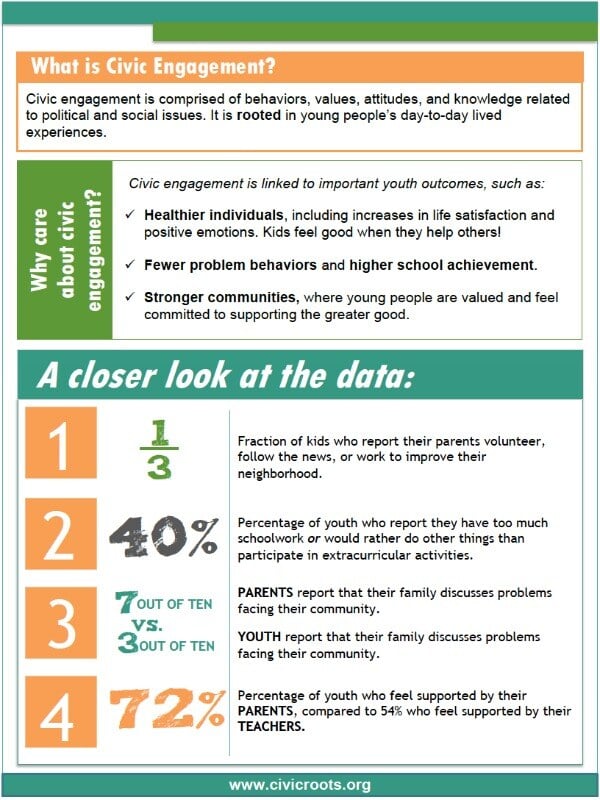The Roots of Engaged Citizenship Project has helped advance our understanding of how young people think about civic issues and grow into civically minded adults.
This collaborative research project with West Virginia University and University of Rochester aims to understand how young people become individuals who positively contribute to their communities, help others, and participate in solving social issues.
The project supports the idea that civic engagement is beneficial for young people’s academic, personal, and social well-being, and—more than that—it makes our communities and society stronger. Below are some early findings from the project.

Four Strategies to Enhance Youth Civic & Character Development
1) Discuss Civic Issues
Why?
Talking with family, teachers, and friends about current events, problems in your community, and injustice helps kids learn how to voice their opinions.
How?
Make it a habit to talk with young people about issues important to your community.
Listen to kids’ opinions and ideas with an open mind.
2) Provide Opportunities
Why?
Productive out-of-school time activities are great opportunities for kids to engage in volunteer work and learn how to be part of a mini-community.
How?
Quality matters. Activities should teach youth to help others and learn new skills.
Diverse activities provide unique and different opportunities for development!
3) Model Civic Behavior
Why?
Parents who participate are more likely to have kids who participate.
How?
Volunteer with your child or the youth with whom you work.
Capitalize on little moments. Youth notice and model how adults treat others!
4) Build Supportive Relationships
Why?
Youth need to feel supported before they can become civically engaged.
How?
Give positive feedback to encourage and challenge continued growth.
Create age-appropriate opportunities for kids to help make decisions.